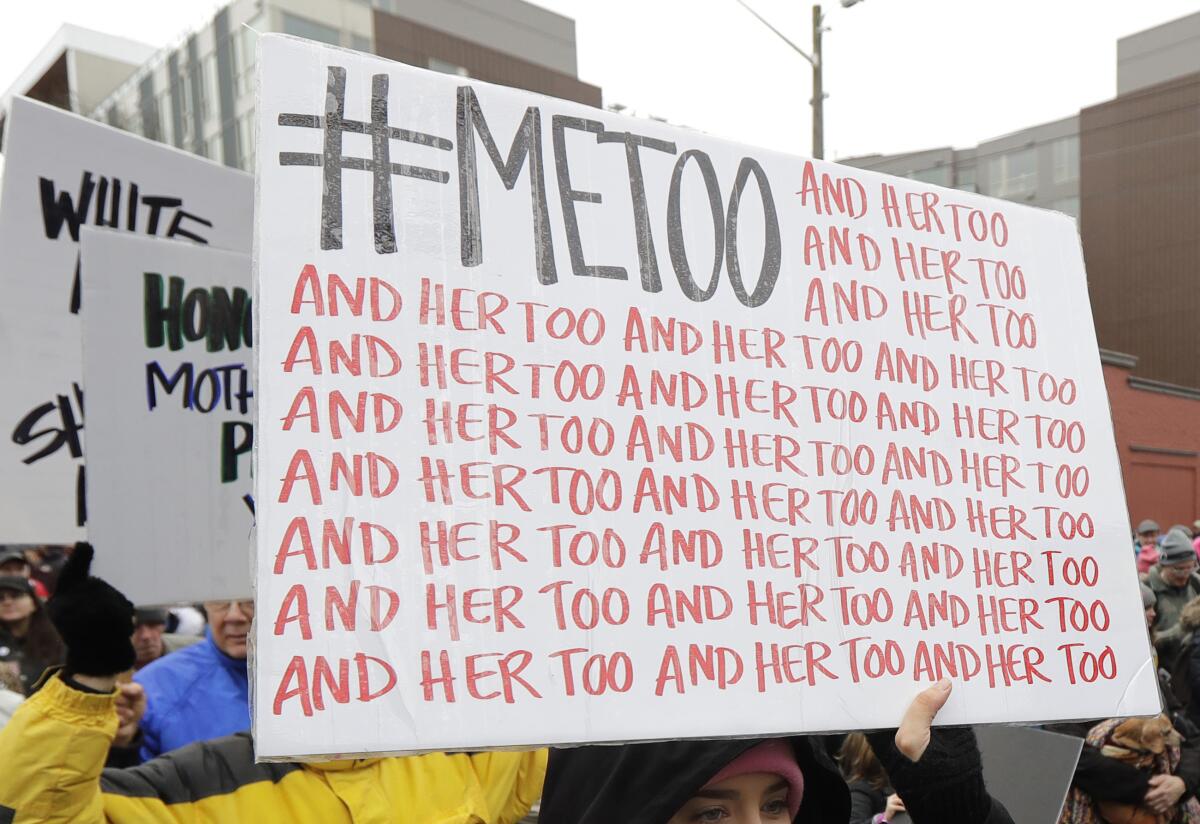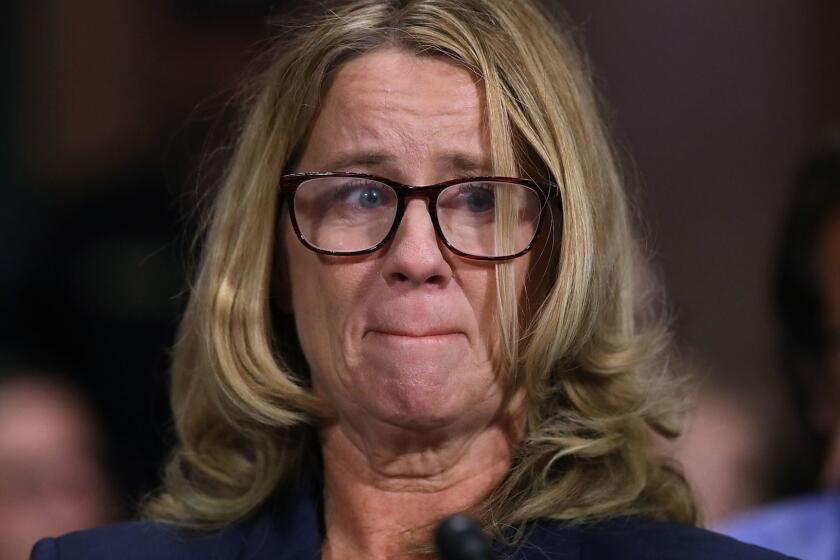About 1 in 16 U.S. women say they were forced or coerced into losing their virginity

- Share via
The first sexual experience for about 1 in 16 U.S. women was forced or coerced intercourse in their early teens, encounters that for some may have had lasting health repercussions, according to a new study.
The experiences amount to rape, the study authors said, although they relied on a national survey that didn’t use the word.
Almost 7% of women surveyed said their first sexual intercourse experience was involuntary. It occurred when they were 15 years old, on average, and the man was often several years older.
Almost half of the women who said intercourse was involuntary said they were held down, and slightly more than half of them said they were verbally pressured to have sex against their will.
The findings were published Monday in the journal JAMA Internal Medicine.
“Any sexual encounter (with penetration) that occurs against somebody’s will is rape,” said Dr. Laura Hawks, an internist and Harvard Medical School researcher who led the study. “If somebody is verbally pressured into having sex, it’s just as much rape.”
In the years after coerced or forced sex, these women had more sex partners, unwanted pregnancies and abortions, as well as more reproductive health problems — including pelvic pain and menstrual irregularities — than women whose first sexual experience wasn’t forced.
Almost 16% of affected women reported fair or poor health, double the rate of other women. The study couldn’t establish whether forced sex caused or contributed to any of the health or other problems.
“Experiencing rape at first sexual encounter is an extreme loss of autonomy over one’s sexuality,” Hawks said. It’s not surprising, she added, that it might lead to later mental and physical health problems, given other studies on lasting effects of trauma.
Previous studies have found that long-term effects of sexual assault may include social isolation, feelings of powerlessness, stigmatization, poor self-image and risky behavior, which all may increase risks for depression and other mental health problems, according to a commentary that accompanies the study.
Research published last year also found worse psychological well-being and physical health among women whose first intercourse was forced or coerced.
The new study is an analysis of responses from 13,310 adult women who participated in nationally representative U.S. government health surveys from 2011 to 2017, before the #MeToo movement went viral.
The researchers focused on a survey question that asked during in-person interviews if women’s first vaginal intercourse experience with a man “was voluntary or not voluntary, that is, did you did you choose to have sex of your own free will or not?”
The results suggest that for 1 in 16 American women the first sexual encounter was not voluntary. That equates to 3.3 million women of reproductive age, the study authors wrote.
Millions of people heard Christine Blasey Ford tell the Senate Judiciary Committee about a long-ago gathering where she said Supreme Court nominee Brett M.
According to the federal Centers for Disease Control and Prevention, nearly 1 in 5 women have been raped in their lifetimes. For almost half of those women, it happened when they were younger than 18.
The study, which asked women from ages 18 to 44 to recall their first sexual experience, reported no information on women’s relationship with the men, who could have been boyfriends, relatives or strangers. Men were not included in the study.
Hawks said boys need to be taught communication skills to prevent them from pursuing sex “with someone who is an unwilling participant.” The onus should not be on the victims, she said.
“The #MeToo movement is a promising sign that we’re more willing as a society” to address sexual violence, she added.
The commentary noted that the study lacks information on women’s health and any abuse before their first sexual encounter. There also are no data on any later sexual violence — which all might contribute to health problems, wrote Dr. Alison Huang of UC San Francisco and Carolyn Gibson of the San Francisco Veterans Affairs Health Care System, who both study women’s health.
“Such research is needed to understand and address the full range and consequences of these experiences,” the pair wrote.
Sex education specialist Dan Rice said inadequate sex education in U.S. schools contributes to the problem.
“Our culture teaches people not to be raped instead of teaching people not to rape,” said Rice, the interim executive director at Answer, a Rutgers University group that provides sex education training for teachers and oversees Sex, Etc., a teen-run sex education magazine and website.
Just 24 states require sexual education to be taught in public schools and some programs focus only on abstinence. Consent isn’t always on the agenda and boys often aren’t taught how to express their emotions in healthy ways, he said.
Sarah Emily Baum, 19, a staff writer for Sex, Etc., said the study results ring true.
“Almost everyone has a story or a close call like this one or knows someone with a story or close call,” said Baum, a sophomore at Hofstra University in Hempstead, N.Y.
Baum recalls that a police officer invited to discuss sexual consent and assault at her high school focused only on girls, telling them, “‘You’ve got to make sure you say no and say it loud enough for people to hear.’” There was little mention of boys’ responsibility, and no discussion of same-sex assaults or even girls being the aggressors, said Baum, who is gay.
“If I go on a date with another girl, I also have to make sure there is clear consent and clear boundaries,” she said. “It goes both ways.”
Tanner writes for the Associated Press.







